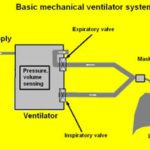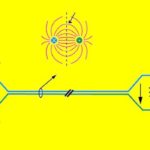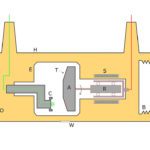The FDA recently authorized use of a fast test for the Covid-19 virus that reportedly can finish up in about 45 minutes. The test was developed by Cepheid, a molecular diagnostics company that is part of Danaher Corp. The beauty of the new test is that it runs on existing Cepheid hardware called the GeneXpert system, a tabletop device installed in over 23,000 locations worldwide with over 5,000 in the U.S., according to the company.
As in previous Covid-19 testing regimes, the Cepheid test is genetic. It looks for Covid-19 genetic material as a positive indication of the virus. But ordinary genetic tests generally take a day or two complete, partly because they involve as least two different pieces of laboratory gear, a thermal cycler and a DNA extraction apparatus. The thermal cycler is basically a precise heater/cooler. The DNA extractor separates the nucleic acids in a cell from proteins and other cellular materials. Extraction methodologies in wide use include gel electrophoresis, Chelex, or solid-phase extraction.
Ordinary genetic tests typically employ several manual procedures such as mixing reagents and transferring test tubes of material between machines. The GeneXpert system simplifies things in that all tests take place on a sample sitting in a cartridge small enough to fit in your hand. Technicians take a swab from a patient’s throat, mix it with a liquid medium, pipette the liquid into the cartridge, then put the cartridge in the GeneXpert instrument. Forty five minutes later, the patient has either good news or bad news.
Cepheid hasn’t described the exact sequence of events that take place in the cartridge during a Covid-19 test. But the procedure is probably similar to what happens when the GeneXpert machine runs a test for MRSA or norovirus.
The GeneXpert cartridge is characterized by several chambers that can be accessed by a central built-in rotating valve. The bottom of the cartridge contains a filter used to catch genetic material. At the back of the cartridge is what’s called a reaction chamber. This is where thermal cycling and the actual detection of the virus genes (or their absence) takes place.
The official name for the tests that GeneXpert runs is a nucleic acid amplification test (NAAT) because it detects a particular nucleic acid sequence that characterizes a specific virus. The machine first purifies and concentrates genetic material from sputum samples, then isolates material of interest by sonication, basically using ultrasound to disrupt cell membranes. The amount of interesting genetic material in the sample is usually small, so the machine includes a step that amplifies (i.e. makes a lot of copies of) the genetic material. There are several ways of amplification, but the GeneXpert uses one called polymerase chain reaction (PCR). In PCR, a series of temperature cycles are used to break apart DNA strands and then bind short single-strand DNA fragments to them as a means of making copies. One there’s enough material, the machine shines various LEDs on the resulting sample to note visual effects such as fluorescence as a signal that the virus DNA has been detected.






I have a BS in Biology and grad course in DNA analysis from Westfield State University in Westfield, Mass. Will this company DONATE this machine to me so I can do local testing in my Community?